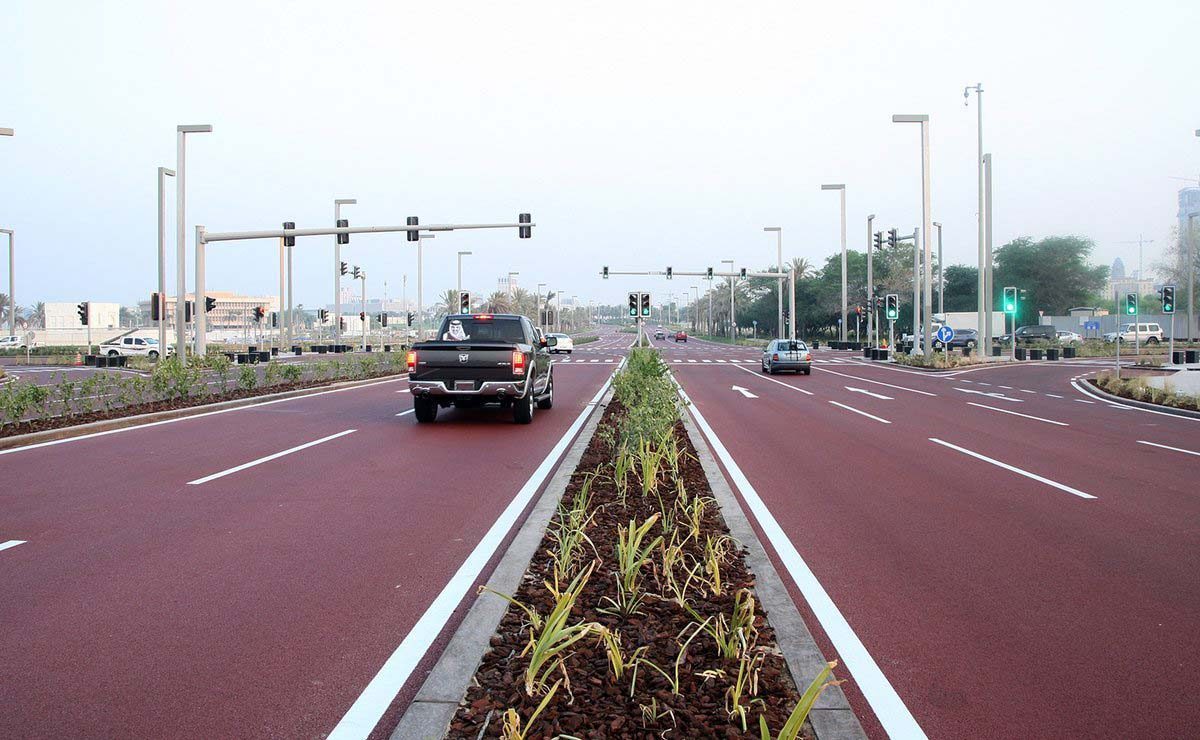The advanced system helps detect and monitor pedestrians and cyclists waiting to cross the road.
Automatic pedestrian crossing sensor technology will be installed at several intersections across the country to enhance traffic safety and reduce traffic accidents, the Public Works Authority (Ashghal) has announced.
The new initiative comes as part of a new traffic control plan developed to monitor pedestrian traffic in hefty intersections in Doha, especially with the World Cup approaching in less than a year.
“Ashghal is working on developing roads and implementing unique solutions for safer and efficient road crossings, using international best practices and advanced technologies, in line with the State’s strategy to achieve sustainable development,” said Abdulla al-Khalaf from the Roads Operation and Maintenance Department.
“We are in the process of expanding the use of this technology at all intersections with pedestrian crossings, to ensure enhanced traffic safety for pedestrians and vehicles at crossings, besides boosting customer satisfaction.”
The technology was installed to help the public at some vital intersections, including Doha City Center, Nasser Bin Khaled Intersection, Al Jasra Intersection, Wadi Al Sail Intersection, Fire Station Intersection, Al Khaleej Intersection, and Al Diwan Intersection.
Shortly, authorities will implement the technology across the country.
In a statement, Ashghal explained that the cutting-edge, round-the-clock technology incorporates 3D stereoscopic vision with infrared illumination that helps automatically detect pedestrians and recall the green signal to prioritise their crossing.
The government has also put enormous effort into adopting new road strategies to ensure safety, including implementing new traffic signals, expanding roads, introducing stricter driving license requirements, and installing high-tech speed traps.
Safer roads
This year, Qatar‘s traffic department has managed to successfully reduce the number of road deaths in the country.
According to authorities, there’s been a 64% drop in traffic related fatalities over the past ten years.
The Gulf nation recorded 4 deaths per 100,000 population in 2020, compared to 11.3 in 2010, which translates into a decrease of 64.4 percent.
To keep on track, a further 25 percent reduction by next year has also been set by authorities to avert what are preventable deaths and injuries on the roads, a UN official revealed.
Decade of Action
Globally, road traffic accidents have remained a major cause of death with more than 3500 people losing their lives every day on the roads, which amounts to nearly 1.3 million preventable deaths and an estimated 50 million injuries each year – making it the leading killer of children and young people worldwide, according to the World Health Organisation.
If no action is taken in the next decade, experts estimate there could be around 13 million more deaths and 500 million injuries, particularly in low- and middle-income countries.
The worrying statistics have pushed governments from around the world, Qatar included, to declare unanimously – through UN General Assembly Resolution 74/299 – the Decade of Action for Road Safety 2021-2030, an ambitious goal of reducing road traffic deaths and injuries by at least 50% during that period.
The Global Plan outlines recommended actions and policies that have proven effective for decreasing road fatalities as well as preventing road trauma.
“It should be used as a blueprint to inform and inspire national and local plans that are tailored to local contexts, available resources, and capacity. The Global Plan is aimed not only at senior policy-makers, but also other stakeholders who can influence road safety, such as civil society, academia, the private sector, and community and youth leaders,” WHO stated on its website.
Qatar’s road safety efforts and strong strategies are expected to lead the country into a more sustainable path— a prominent goal for its 2030 vision.







